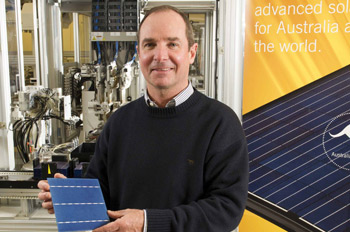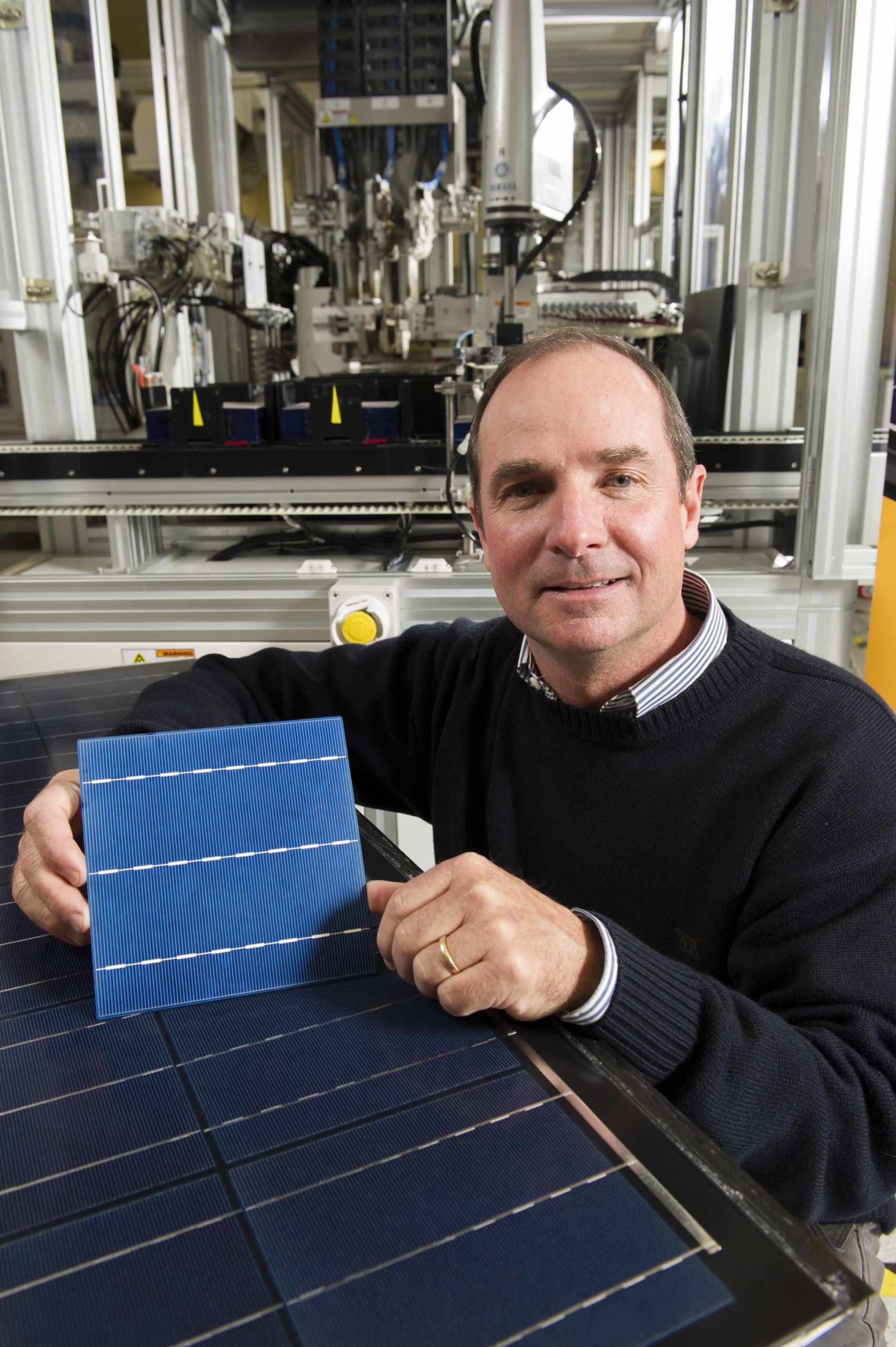Institution: Wharton University
Course: Executive Development Program
How I became an Industry Leaders Fund recipient
I was approached by Mr Geoff Vogt, who spent time both on the phone and face-to-face, detailing the merits and potential of applying for a grant. I am advised by Geoff that a number of positive media reports on Tindo Solar had contributed to his decision to target myself for a phone call.
The application process
The application process was straightforward. In a two-round process, the applicant is able to detail why a grant would likely yield personal and commercial benefit. In my case, I was and remain passionate about linking genuine manufacturing innovation and automation with job creation in our marvellous state. Tindo has the added benefit of manufacturing a product that is both good for the environment and the “back pocket” of clients, irrespective of being a domestic or commercial property.
The final interview was conducted in a relaxed and supportive atmosphere where there was a genuine interest in exploring more fully and personally hopes and aspirations for my career and what “give-back” interest and potential exists. Being involved in other business and with people keen to better themselves and the State are large interests of mine.
Why I chose Wharton University (Pennsylvania) USA
On the suggestion of Geoff, and post a meeting with Alf Ianniello (Detmold) who had been to Wharton University, I explored the topics covered at Wharton University (USA) in the Executive Development Program, and it seemed to fit my broad needs for topics around strategy, negotiations, business growth, marketing concepts and activities, financial over sight and relationship building.
What I learned from the course
The value of genuine relationships, ethics and values is a key take away for me, and consistent to this is ensuing that listening skills are focused at every meeting. Really understanding what drives the other person and finding ways to build long term relationships is so critical to long term business success. I understood this prior to the course, but this was reaffirmed strongly through many topics in the course. In fact, much of the course was beneficial in confirming that many of my current ways of operating and concepts that I bring to the table have been more accurate than not and this was useful. Clearly there were lectures that suggested other and better ways to do things, which I will aim to apply to Tindo.
In addition we covered innovative ways to assess the financial health of a business and what options there are with cash. The question of mergers and acquisitions was ably managed by a lecturer who is currently dealing with $70 billion worth of businesses that have been acquired, and the strategies applied to ensure success was useful. We spent considerable time on the topic of negotiation skills and conducted a number of challenging scenarios in live negotiations. Other useful topics for me included marketing, customer-centricity and the power of corporate culture: important topics, and ones that I will look to bring to Tindo Solar.
The value of the networks and conversations I had
There were 49 people attending from 17 countries, all comfortably clever, interesting and with terrific communication skills and sharp minds.
All of us agreed to keep in contact and to serve as sounding boards and resources where needed.
The benefits to me
The ability to step out of Tindo for two weeks was valuable in itself (to reflect and contemplate), and to do so in an educational environment where ideas, concepts and challenges were presented daily was powerful. I have effectively been given a slightly different “lens” and framework with which to view our business, and which will assist me as I assist and support our businesses growth. The experience has provided me with a new set of questions to ask when discussing Tindo as together we drive Tindo forward.
Tindo benefit
I am reminded of the need to focus on how our business needs to operate today and what Tindo might look like in the future. I remain keen to foster and contribute to conversations that might get us there, and to generate a conversation with Tindo’s shareholders around developing our shared vision and activities. I have also been reminded of the need for regular structured internal meetings that allow for strategic contemplation on Tindo’s medium to long term direction.
Consistent with the above is the need to remain true to our core values and our ethics. The risk of compromising on either of these elements is not worth the risk to our brand and reputation. The solar market place is characterised by cheap imported product, while Tindo has set itself apart as manufacturer and supplier of genuine world class panels and a safe pair of hands in supporting the public in going solar with legitimate systems and processes.
A search for innovation in all we do remains key, both in the product and in our sales and marketing approaches. Our marketing spending needs to be better measured for efficacy and customer-centricity once clarity is gained on the essential reason(s) people purchase Tindo. The focus on a single marketing medium is unlikely to be successful given the data presented during the course. In practice, a hybrid marketing strategy, given good research on both Tindo and competitors, will lead to better use of marketing budgets leading to an enhanced sales outcome.
I remain convinced that my strategy to link with decision makers in all tiers of Government to articulate and prosecute the view that Tindo has a lot to offer the state as a manufacturer with a unique automated plant employing South Australians is the correct approach. All of our staff are provided with a new set of skills which are unique to Australia. Similarly, my focus on building relationships with business is proving useful in terms of awareness and interest in Tindo solar systems. Our staff produce, with pride, a genuine quality product that provides a financial return for clients and a positive dividend to our environment and the state. Communication with enthusiasm, solutions and passion is the only way. Networking wherever possible is one of the simplest ways to build brand and product awareness, given the obvious advantage achieved when business is discussed in the context of a relationship.
I am reminded that speed of decision making and implementation, provided that product quality is not compromised, will contribute to the financial success of Tindo. Too often we have been caught up in the ambition to make each activity or initiative 100% right, which has led to long delays in application, or at worst, no action at all. Lack of action for the sake of perfection will not advance Tindo’s bottom line. Excellent communication, attention to systems, regular meetings are all initiatives that I will explore to enhance speed of activity.
Alf Ianniello’s report to the ILF included the following focus elements for the future and I agree:
- Brand leadership
- People and relationships
- Sustainability
- Competitiveness
I will also add global exploration for sales, given the world class product Tindo manufacturers.
My interest and capacity to explain the benefits of being involved with the ILF, and the importance of on-going learning to people at Tindo and elsewhere, along with job creation for SA
I will take every opportunity to articulate my positive experiences that occurred through the support of the ILF and Tindo Solar, which facilitated my attendance at Wharton University. I will be available into the future to support potential ILF grantees with any questions they may have around the process, and to detail my experience. My support and involvement for the group within the ILF network will also remain.
Clearly the genuine support by Geoff Vogt, and then Alf, contributed considerably to my initial application and subsequent success.
I will look for opportunities to advocate for manufacturing jobs across our state and to influence the engagement of small business in building better policy that embeds locally manufactured products in government procurement, along with fostering urgency around state based B2B procurement. Let’s aim to keep business within SA or Australia, as opposed to the easy importing of cheap products.
I will continue to build business and government relationships whenever possible in my effort to generate greater awareness of Tindo, and to ensure that Tindo is at the table for discussions whenever I have the ability to influence better policy that fosters manufacturing, job creation using innovation, and automation. Clearly, a positive environmental outcome is also important and achievable.
My focus and interest around continuous improvement within Tindo is renewed, which will hopefully yield a better bottom line for the business and assist our capacity to compete. I will also look to continue my education, principally by being involved in groups like the ILF and by building business relationships with key and successful people. There is a lot to learn from a great many people across SA, and indeed within Tindo.
I will recommend to others within Tindo that they explore the opportunity to gain a grant from the ILF, and I very much thank Geoff and all at the ILF for my opportunity.
Sincerely
Richard J Inwood – Tindo Solar – 0428 606 420
(2013 Grantee)


